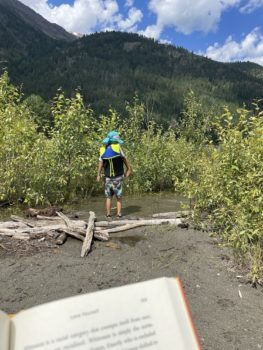First, I know you know that I LOVE small groups of human beings and what they can do when they work together toward a common goal. (And yes, I sometimes get stressed, annoyed, and worked up when working with small groups of people.) But mostly, I love it!
And yet, I still don’t always reach out and ask for support when I need it or create collaboratively when the results would be better if a small group was involved.
Why do I still opt for the individual response or act?
Perhaps the deeply ingrained individualistic, capitalist culture and my own internalized whiteness taught me the false notion that working together is weak and dangerous. Maybe I internalized that it was important to keep my circle of care small – so as not to feel shame or lose face. I think yes. And I desire to remain in control and not feel vulnerable by showing my needs or my first draft ideas. Yes, this.
All these things stop me from reaching out even when I know supporting each other and creating together in a community leads to less loneliness, better ideas, and overall strengthens the fabric of our humanness.
I am actively working on stretching even further toward being in community. I am committing to offering care and following through with my offers, asking for support, and creating solutions with others.
Building together is an antidote to toxic capitalism and creates ripples of compassion, connection, and creativity; still, it takes courage to reach out, share and build with fellow brilliant, messy humans.
I want to share a recent story in my life where I have actively shifted from “going it alone” to “asking for support.”
In our family life, there have been a LOT of sicknesses. A friend recently talked about something in our family’s timeline by asking – “Was that between sickness number 7 and number 8?” This is not a new story for all the families with kids under 10 returning to schools and childcare outside the home. We are all constantly dealing with someone sick in the house. And this means – a decrease in physical and mental well-being, double duty for family members (caretaking and other work), loss of work hours, late nights, and very messy houses (okay maybe the mess is just us).
During the holidays, when I was quarantined downstairs with Covid, our flights to be with family were canceled, and Rob and Lino celebrating alone – I thought to myself – we need help. I asked Rob what he was missing the most. He said he was sad not to have the big meal (with lots of succulent meat) we would have had with his family. I texted a few sets of beloved friends asking – “Hey if you have a few leftovers after holiday meals, could you drop them off?”
Friends said yes.
We ate for days on crab, steak, a full Moroccan feast, and a multi-layer cake.
Support came too in the form of texts checking in on us, funny memes, movie recommendations I could watch while in bed, and herbal medicines left in our milk box.
For me, asking for support was easy and embarrassing. I had to swallow the notion that we should do it alone. And we could have “done it alone” but missed the opportunity to feel alive and held in others’ care. Because I asked for help, I knew my family was cared for upstairs. I could rest.
One thing to know, however, the support only happened partially because of 1 or 2 texts. The friends I contacted have been in our life for over ten years. Many of them we currently or have lived in community with. I have asked for support before. And I have asked many of them in times of sickness and loss, “what can I do?” and in times of celebration, “what can I bring?”
We are in an ongoing, evolving, mutual community of support. I am committed to loving them, and I care about their well-being.
You may have this in your personal life. If you don’t, it IS possible to create this – find the friendships or acquaintances you want to invest in and check in with them more often. Or join a group experience like a hiking or book group and provide care and ask them for support.
Though, I wonder, do you foster these kinds of caring communities in your professional life?
Do you have groups you can turn to when things are falling apart in a project?
Who would you text and ask to talk for a few minutes about a problem with a team you are leading?
Who is supporting you in your leadership and growth? Who do you support and offer care to?
Communities of support give us the room to reflect, learn, be seen, give and receive care, keep our values and actions consistent, release shame, do better, innovate, and create.
Take one small step today to join or foster a community of support.
P.S. The teams you work in can offer solid support and a place to build and create together. If you want help building a stronger team that can support each other and make changes, let’s talk!






Leave a Reply